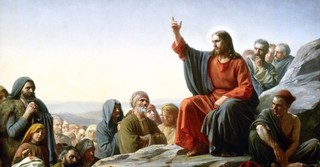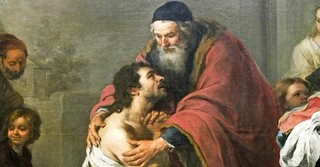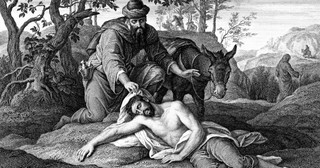Sodom and Gomorrah - Bible Story
Share
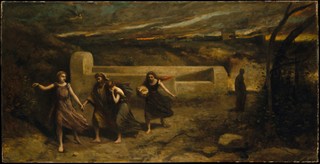
The Bible story of Sodom and Gomorrah is one of the most compelling and cautionary stories in the Book of Genesis. These ancient cities, known for their rampant wickedness, were destroyed by divine judgment, leaving a lasting impact on religious and cultural discussions about sin and morality. This article delves into the narrative of Sodom and Gomorrah, exploring its themes, significance, and enduring lessons.
Sodom and Gomorrah was an ancient city of Syria located in the plain of Jordan. The city was destroyed by fire from heaven in the time of Abraham and Lot (Genesis 19:24). The city's wickedness became proverbial. The sin of sodomy was an offense against nature frequently connected with idolatrous practices. The fate of Sodom and Gomorrah is used as a warning to those who reject the gospel (Matthew 10:15; 11:24; 2 Peter 2:6; Jude 1:7). The word is used in a typical sense in Revelation 11:8. Sodom was presumably located in plain South of the Dead Sea, now covered with water. The name is still preserved in Jebel Usdum (Mt. Sodom).
Sodom and Gomorrah in the Bible
The Bible story about the city of Sodom and Gomorrah is a sad story that reminds us of just how much God hates sin. During the time of Abraham, three angels came to visit him, and two of the angels decided to go visit Sodom and Gomorrah. The Lord told Abraham that he would destroy the city because of the people's sins. God also told Abraham that he would spare the people and not destroy Sodom and Gomorrah if he could find even ten righteous people.
When the two angels arrive in Sodom and Gomorrah, a man named Lot invites them to stay at his home. Some men from the city came to Lots home demanding to be given the two visitors so they could have sex with them. Lot, trying to defend and protect the angels, offered the men his virgin daughters in their place. As the angry men tried to break into Lot's home, the angels struck the men blind and then led Lot and his family out of the city.
As Lot's family fled Sodom and Gomorrah, God rained down, burning sulfur onto the city. All men, animals, and vegetation were destroyed. The angels warned Lot and his family not to look back but his wife did not listen and was immediately turned into a pillar of salt when she looked back.
What Do We Know About Sodom?
The name Sodom means "burning" - It was a city in the vale of Siddim Genesis 13:10; 14:1-16). The wickedness of its inhabitants brought down upon it fire from heaven, by which it was destroyed (18:16-33; 19:1-29; Deuteronomy 23:17). This city and its awful destruction are frequently alluded to in Scripture (Deuteronomy 29:23; Isaiah 1:9 Isaiah 1:10; Jeremiah 23:14; Ezekiel 16:46-5; Zephaniah 2:9; Matthew 10:15; Romans 9:29; 2 Peter 2:6, etc.). No trace of it or the other cities of the plain has been discovered, so complete was their destruction. Just opposite the site of Zoar, on the southwest coast of the Dead Sea, is a range of low hills, forming a mass of mineral salt called Jebel Usdum, "the hill of Sodom." It has been concluded, from this and other considerations, that the cities of the plain stood at the southern end of the Dead Sea. Others, however, with much greater probability, contend that they stood at the northern end of the sea.
On the one hand, the narrative of Genesis seems to state positively that it lay at the northern end of the Dead Sea. On the other hand, long-continued tradition and the names of the existing spots seem to be pronounced with almost equal positiveness that it was at its southern end. We can hardly hope to form a satisfactory conception of the catastrophe that destroyed the city and the district of Sodom. Some catastrophe there undoubtedly was, but what secondary agencies, besides fire, were employed in accomplishing the punishment cannot be safely determined in the almost total absence of an exact scientific description of the natural features of the ground around the lake. We may suppose, however, that the actual agent in the ignition and destruction of the cities had been of the nature of a tremendous thunder-storm accompanied by a discharge of meteoric stones (and that these set on fire the bitumen with which the soil was saturated, and which was used in building the city. And it may be that this burning out of the soil caused the plain to sink below the level of the Dead Sea and the waters to flow over it--if indeed Sodom and its sister cities are really under the water.) The miserable fate of Sodom and Gomorrah is held up as a warning in numerous passages of the Old and New Testaments. (Excerpt from Smith's Bible Dictionary)
What Do We Know About Gomorrah?
The name Gomorrah means "submersion". It was one of the five cities of the plain of Siddim (q.v.) which were destroyed by fire (Genesis 10:19; 13:10; Genesis 19:24, Genesis 19:28. These cities probably stood close together and were near the northern extremity of what is now the Dead Sea. This city is always mentioned next after Sodom, both of which were types of impiety and wickedness (Genesis 18:20; Romans 9:29). Their destruction is mentioned as an "example unto those that after should live ungodly" (2 Peter 2:6; Jude 1:4-7). Their wickedness became proverbial (Deuteronomy 32:32; Isaiah 1:9 Isaiah 1:10; Jeremiah 23:14). But that wickedness may be exceeded (Matthew 10:15; Mark 6:11). (Easton's Bible Dictionary)
One of the CITIES OF THE PLAIN (which see) was destroyed by fire from heaven in the time of Abraham and Lot (Genesis 19:23-29). It was located probably in the plain South of the Dead Sea, now covered with water. However, others who place the Cities of the Plain at the North end of the Dead Sea, fixes upon Khumran (or Gumran), marked on the Survey Map of Palestine North of Ras Feshkeh, where there are ruins about a mile from the Dead Sea. But there is nothing to support this view except the faint resemblance of the name and the inconclusive arguments placing the Cities of the Plain at that end of the sea. (Excerpt from International Standard Bible Encyclopedia)
The Sin of Sodom and Gomorrah
Sodom was a wicked and vile place. Wickedness had become universal, and they were unanimous in any vile design. Here were old and young, and all from every quarter, engaged in this riot; the old were not past it, and the young had soon come up to it. That they had arrived at the highest pitch of wickedness; they were sinners before the Lord exceedingly ch. 13:13 ); for, 1. It was the most unnatural and abominable wickedness that they were now set upon, a sin that still bears their name, and is called Sodomy. They were carried headlong by those vile affections (Rom. 1:26, Rom. 1:27 ), which are worse than brutish, and the eternal reproach of the human nature, and which cannot be thought of without horror by those that have the least spark of virtue and any remains of natural light and conscience. Note, Those that allow themselves in unnatural uncleanness are marked for the vengeance of eternal fire. (see Jude. 7) They were not ashamed to own it and to prosecute their design by force and arms. The practice would have been bad enough if it had been carried on by intrigue and wheedling, but they proclaimed war with virtue and bade open defiance to it. Hence daring sinners are said to declare their sin as Sodom (see Isaiah 3:9). (Matthew Henry Bible Commentary)
What Was the Significance of Sodom and Gomorrah?
Early the next morning, Abraham got up and returned to the place where he had stood before the Lord. He looked down toward Sodom and Gomorrah, toward all the land of the plain, and he saw dense smoke rising from the land, like smoke from a furnace (Genesis 19:27-28).
In the early dawn, Abraham, the God-ordained father of nations, stands in the place where hours before he had petitioned God to spare the wicked cities of Sodom and Gomorrah from Divine judgment (Genesis 18:16-33). The Lord had heard the “outcry” against the evil of these cities (Genesis 18:20), and He was ready to release His holy wrath against them.
The previous evening, as the fate of these cities hung in the balance, the conversation between Abraham and God had begun with a plea from the heart of the future patriarch: Will you sweep away the righteous with the wicked? What if there are fifty righteous people in the city? Will you really sweep it away and not spare the place for the sake of the fifty righteous people in it (Genesis 18:23-24)?
Moving from the hope of at least 50 righteous people, down to 10, Abraham continued to beseech the One True God, for surely there were some who were honorable and righteous among the inhabitants of Sodom and Gomorrah. In fact, his nephew Lot was there, along with Lot’s family!
But this morning, the time for intercession is past and evidence of destruction rises in the air before him. Thick smoke, “like smoke from a furnace,” fills the distant sky over the plains, and in this moment, Abraham knows with a sorrowful certainty: not even ten people could be found in the surrounding plains who worshipped the Lord God.
As Abraham’s gaze roams over the devastation of Sodom and Gomorrah, he is surely struck by the finality of God’s judgment—for nothing survived, including people or vegetation (Genesis 19:25). Because of their ongoing rebellion against their Creator, the former inhabitants of the cities are not only wiped from the earth, but they are also eternally separated from the presence of God (Romans 6:23, 2 Thessalonians 1:9).
What Was the Meaning of the Sodom and Gomorrah Story?
The story of Sodom and Gomorrah continues to reach through time as a warning to mankind. God is full of love and compassion (Psalm 86:15, John 3:16), but He is also holy and just (1 Samuel 2:2). The Creator and Sustainer of all things cannot have anything to do with sin and ungodliness and rebellion against the Most High will not be allowed to continue indefinitely (1 John 3:8).
A holy God requires justice, and the wrath unleashed on Sodom and Gomorrah foreshadows the ultimate justice coming on the day of final judgment. The apostle Peter writes, if he condemned the cities of Sodom and Gomorrah by burning them to ashes, and made them an example of what is going to happen to the ungodly... (2 Peter 2:6). And in 2 Peter 3:7, we read, By the same word the present heavens and earth are reserved for fire, being kept for the day of judgment and destruction of the ungodly.
But this story is also one of God’s great mercies because Lot, his wife, and his daughters were spared from the horror of burning sulfur. God knew that the culture of Sodom and the surrounding plains was one of extreme depravity. He also knew this ongoing wickedness and rebellion warred against Lot’s soul (2 Peter 2:8).
Why Should We Heed the Warnings of This Story?
God is loving, compassionate, and full of mercy. But we can’t ignore His holiness. Even though it may appear that the wicked go unpunished, sin and judgment are inseparable—a holy God requires it (Psalm 37:38, Proverbs 11:21, Hebrews 9:27).
The tragedy of Sodom and Gomorrah and the surrounding cities is used in scripture as a severe warning and as an example of evil:
The whole land will be a burning waste of salt and sulfur—nothing planted, sprouting, or vegetation growing on it. It will be like the destruction of Sodom and Gomorrah, Admah and Zeboyim, which the LORD overthrew in fierce anger (Deuteronomy 29:23).
The look on their faces testifies against them; they parade their sin like Sodom; they do not hide it. Woe to them! They have brought disaster upon themselves (Isaiah 3:9).
It was the same as happened in the days of Lot: they were eating, they were drinking, they were buying, they were selling, they were planting, they were building, but on the day that Lot went out from Sodom it rained fire and brimstone from heaven and destroyed them all. It will be just the same on the day that the Son of Man is revealed (Luke 17:28-30).
Similarly, Sodom and Gomorrah and the surrounding towns gave themselves up to sexual immorality and perversion. They serve as an example of those who suffer the punishment of eternal fire (Jude 7).
Archaeological Evidence
Possible Locations:
- Tall el-Hammam: One of the most significant archaeological sites proposed as the location of Sodom is Tall el-Hammam, located in the Jordan Valley. Excavations led by Dr. Steven Collins have revealed a large Bronze Age city with evidence of a sudden, catastrophic destruction around 1700 BCE, which some believe correlates with the biblical account of Sodom's destruction.
- Bab edh-Dhra and Numeira: These two sites, located near the southeastern shore of the Dead Sea, have also been considered possible locations for Sodom and Gomorrah. Excavations have uncovered evidence of extensive fire damage and destruction layers dated to the Early Bronze Age (circa 2350 BCE).
- Destruction Layers: At both Tall el-Hammam and Bab edh-Dhra/Numeira, archaeologists have discovered layers of ash and evidence of intense fire, which could be consistent with the biblical description of destruction by fire and brimstone.
Geological Evidence:
- Dead Sea Geology: Some researchers have studied the geology of the Dead Sea area, noting that the region is prone to natural disasters such as earthquakes and releases of natural bitumen (a flammable substance). These factors could explain the "fire and brimstone" the Bible describes.
- Impact Event Theory: Another theory suggests that a meteoritic airburst could have caused the sudden and intense destruction seen at Tall el-Hammam. This theory is supported by high-temperature evidence found in the archaeological remains.
Scientific Examinations
- Sulfur Balls: At some of the proposed sites, researchers have found small balls of sulfur embedded in the ground, which some interpret as evidence supporting the biblical account of sulfur raining down on the cities.
- Radiocarbon Dating: Radiocarbon dating of the destruction layers at these sites has provided approximate dates that some scholars argue could align with the biblical timeline.
Interesting Facts about Sodom and Gomorrah
Sexual sins weren’t the only problems found among the people of Sodom and Gomorrah. The Sodomites and those in the surrounding plains were guilty of sexual perversions (Jude 7), but they were also steeped in pride. The inhabitants were full of self and didn’t care for those in need. Now, this was the sin of your sister Sodom: She and her daughters were arrogant, overfed, and unconcerned; they did not help the poor and needy (Ezekiel 16:49).
The depravity of Sodom and Gomorrah had a devastating hold on Lot’s wife and sons-in-law. Lot’s daughters were pledged to marry local men, and these men were offered salvation from the coming wrath of God (Genesis 19:12-13). Lot pleaded with them to leave, but the foolish men only laughed (Genesis 19:14). Perhaps even more devastating, Lot’s own wife looked back at the destruction of her home and was turned into a pillar of salt (Genesis 19:26).
Through the story of these cities, we see that the mercy shown to Lot was directly linked to Abraham's prayers and petitions. Abraham's prayers mattered. So when God destroyed the cities of the plain, he remembered Abraham, and he brought Lot out of the catastrophe that overthrew the cities where Lot had lived (Genesis 19:29). Oh, the power of the praying saint (James 5:16)!
The Sodomites rejected multiple opportunities to reach for the Living God. These wicked people had once been rescued by Abram (Genesis 14:14-16). The king of Sodom had witnessed Abram worship God with Melchizedek (Genesis 14:17-20). And they had a righteous man living among them in Lot (although a very weak man of God). In these interactions, they had access to—but still rejected—the Truth.
The destruction of Sodom and Gomorrah reminds us of the ultimate cost of rebellion against God. God sent His own Son to bridge the gap between His holiness and our depravity. On the Cross, Jesus took the weight of all sin—yours and mine—so we could be reconciled to God. Three days after His crucifixion, He rose from the grave and defeated sin and death, once and for all.
Each of us falls short of God’s holiness (Romans 3:23), but God made a way by sacrificing His son, Jesus (Romans 6:23), to be the propitiation or atonement for our sins. The continued rejection of Christ leads to death and destruction (Matthew 10:33, Mark 8:38, Matthew 25:31-46) and to a rush of Divine wrath even more terrifying than that experienced in Sodom and Gomorrah.
As we stand beside Abraham and look out over the ruins of Sodom and Gomorrah, we must approach this ancient scene of desolation in humility—and in gratitude for the redemption offered by Jesus’ sacrifice. A Holy God demanded justice—payment—for sin, and Jesus, the precious Lamb of God, was the perfect fulfillment of this requirement.
May we turn from the pride and selfishness that leads to destruction and reach for God’s life-giving offer of salvation. Then, in fullness of joy, may we invest our lives in the great adventure of loving Jesus and in sharing His love and hope with the world.
Photo credit: ©Getty Images/nikkytok
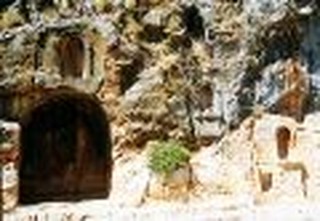
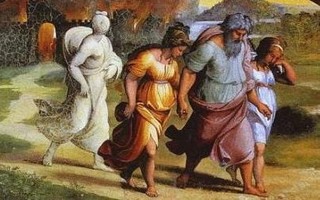
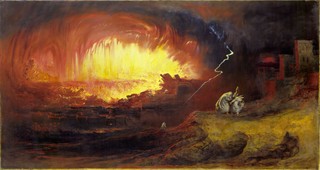
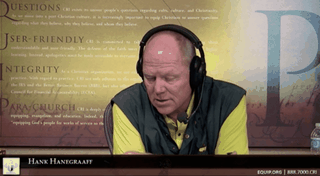

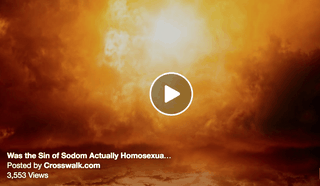
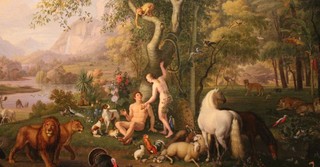
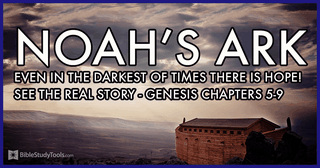
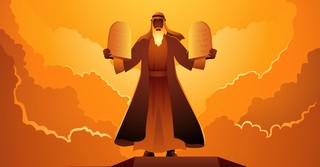
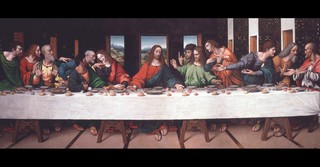
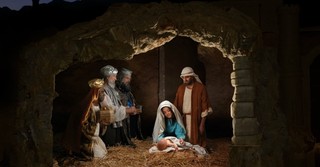
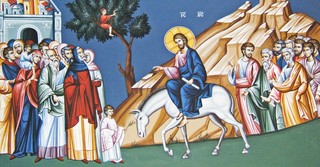
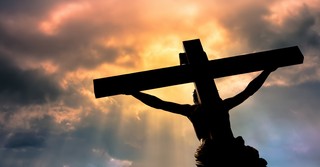
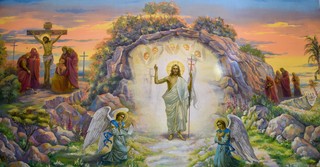
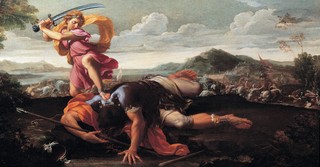
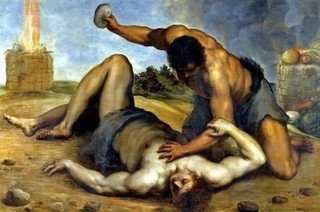
.800w.tn.jpg)
